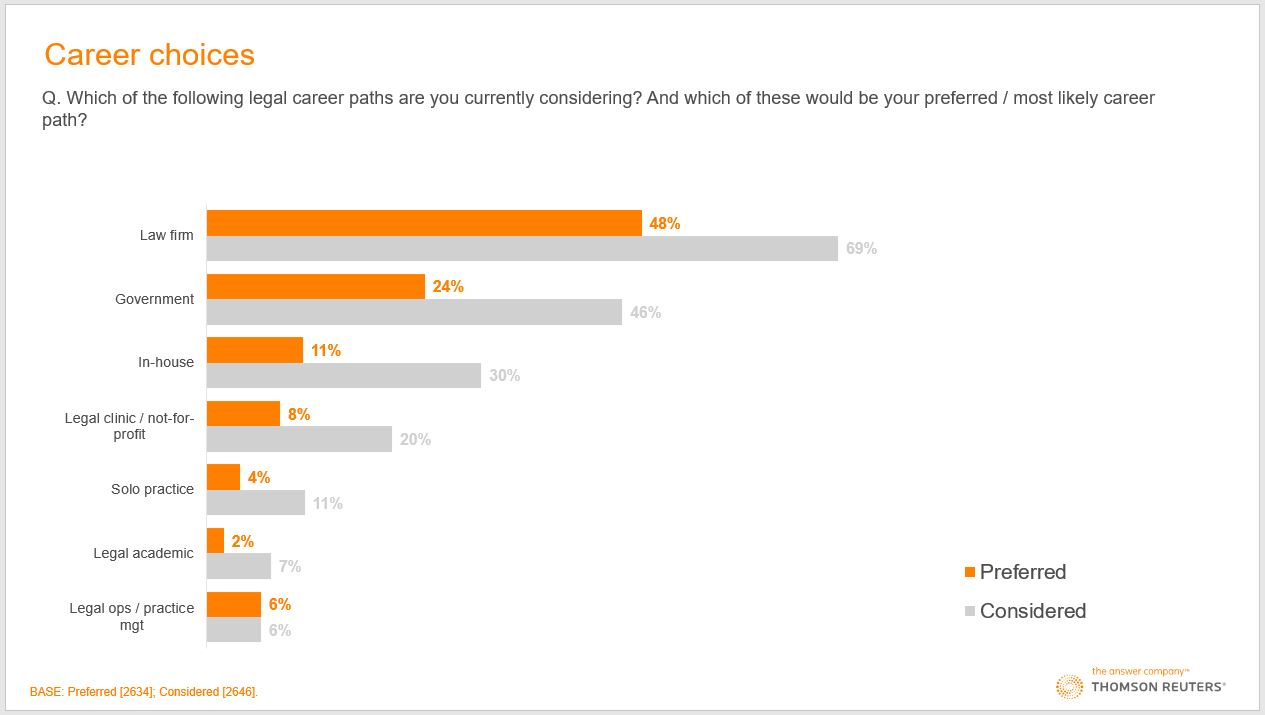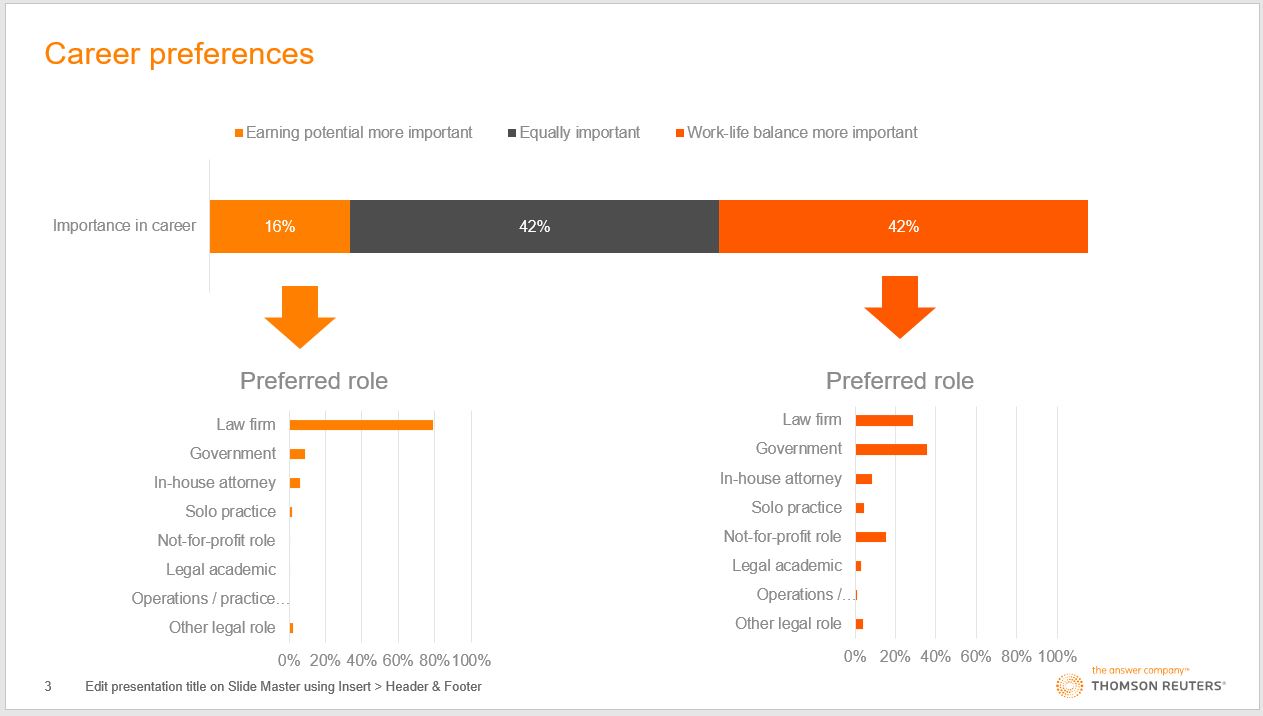Recent research from Thomson Reuters shed some light on the challenges faced in attracting law students to a government career
In a new series, Meaningful Work, we examine how government service is great for those attorneys who are driven by purposeful work and career happiness
There are some real talent challenges in recruiting and retaining early-to-mid-career lawyers in government lawyer roles. Indeed, most of the lawyers in government service are seasoned, Boomer-generation attorneys and could begin retiring en masse soon.
When these attorneys begin retiring at an increasingly high rate, it will cause huge losses in institutional knowledge for many government agencies. Further, when today’s law students start their careers in government service, they will lose out on opportunities for mentorship and the transfer of institutional knowledge because of this situation.
Thomson Reuters’ research showed that less than one-quarter of law students have a preference for a government career. There is room to attract more students, however, as an additional 22% said they would at least consider a government job.

So, what are students looking for in their legal career? Two key factors that law students tend to focus on are work-life balance and earning potential, with those students who prioritize earning potential (16% of all law students) almost invariably going for a law firm position. On the other hand, students who prioritize work-life balance over earnings are often attracted to a government role.
Nevertheless, work-life balance in itself isn’t always enough to attract students to pursue a government career because other legal career options — such as in-house counsel, solo practitioners, and attorneys who work at smaller law firms — also feature more work-life balance, often with greater earning potential than a government role.

Where a government career really stands out is in its ability to make a difference — two-thirds of law students who said they prefer a government position stated that this factor is what excites them most about their future career. Given the variety of public service roles, making a difference can mean helping individuals achieve justice, protecting the community through prosecutions, or at a broader level, creating a more just legal system.
The opportunity to serve and transform local communities are huge drivers for lawyers in public service, no matter at what stage they are in in their careers, and this is likely to remain. “What is quite special about my area of practice [as a public sector lawyer] is that I get to play a part in transforming communities and making a difference,” said Rachel McKoy, Head of Commercial and Contracts at the London Borough of Tower Hamlets.
Attracting more student to government service
To attract more law students, governments agencies may want to employ the following creative options:
Double down on the “finding meaningful work” factor — Public employers need to stress this concept in their marketing materials and in their efforts with their hiring pipelines. Including such lures as quotes from early career lawyers or having younger government lawyers share why their job is important in recruitment material can go a long way to increase an agency’s attraction for law students.
Offer “part time” work for apprenticeship — Allowing soon-to-be retiring lawyers the alternative to finish out their final year of service with mentorship or bringing back retired lawyers part-time for the sole purpose of mentoring junior lawyers gives both the outgoing seasoned lawyers and their incoming replacements a sense of continuity that can help pass on valuable institutional knowledge. This way also fulfills seasoned lawyers’ desire to leave the organization better off than they when they joined.
Keep in touch with alumni — Many lawyers who select to serve in government cycle through with various chapters or departments within several government agencies. For example, Pat Bak, who retired as a deputy executive director of the Federal Trade Commission (FTC) in 2020 stated that within FTC, “we’ve ingrained the idea that at some point you should leave… go to work at a law firm or do something different, and then, come back to us to lead in some capacity.”
Simply coming up with strategies and working with employees on what it would take to make the agency a better place to work was “a continual and just monumental focus of our activities,” Bak explained, adding that in fact, “that is an understatement.”







